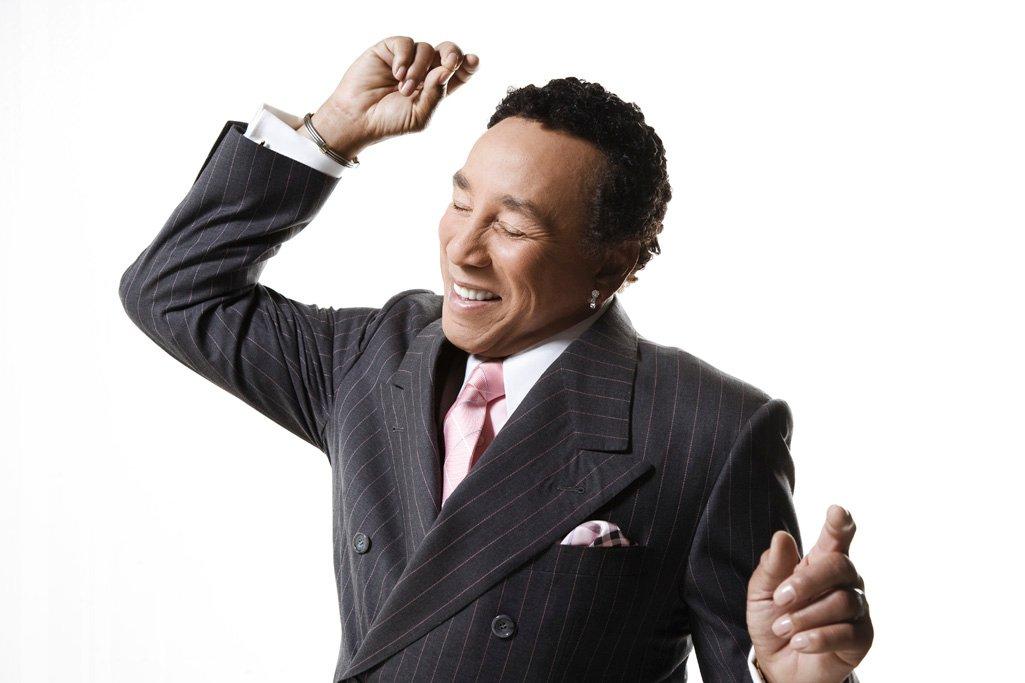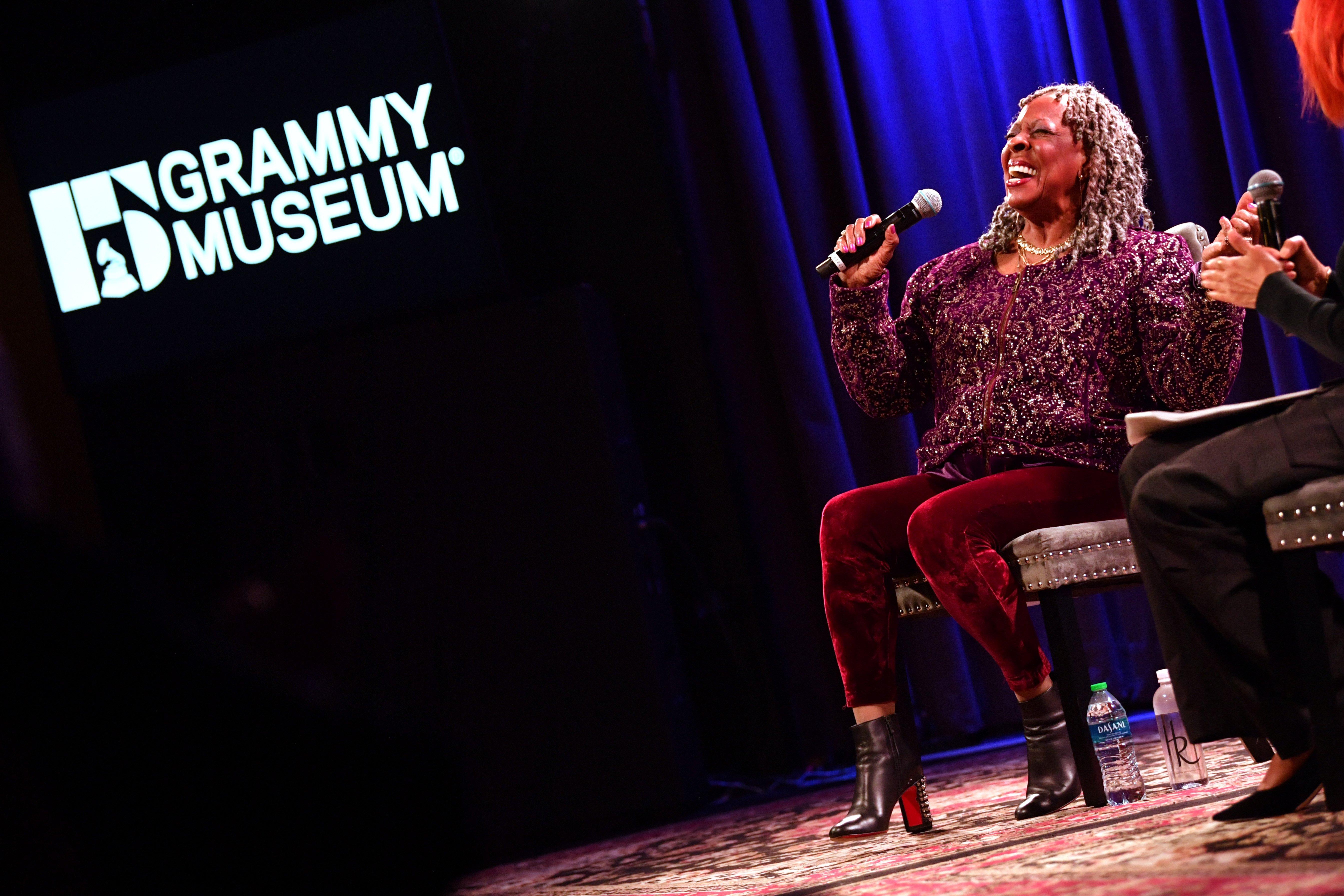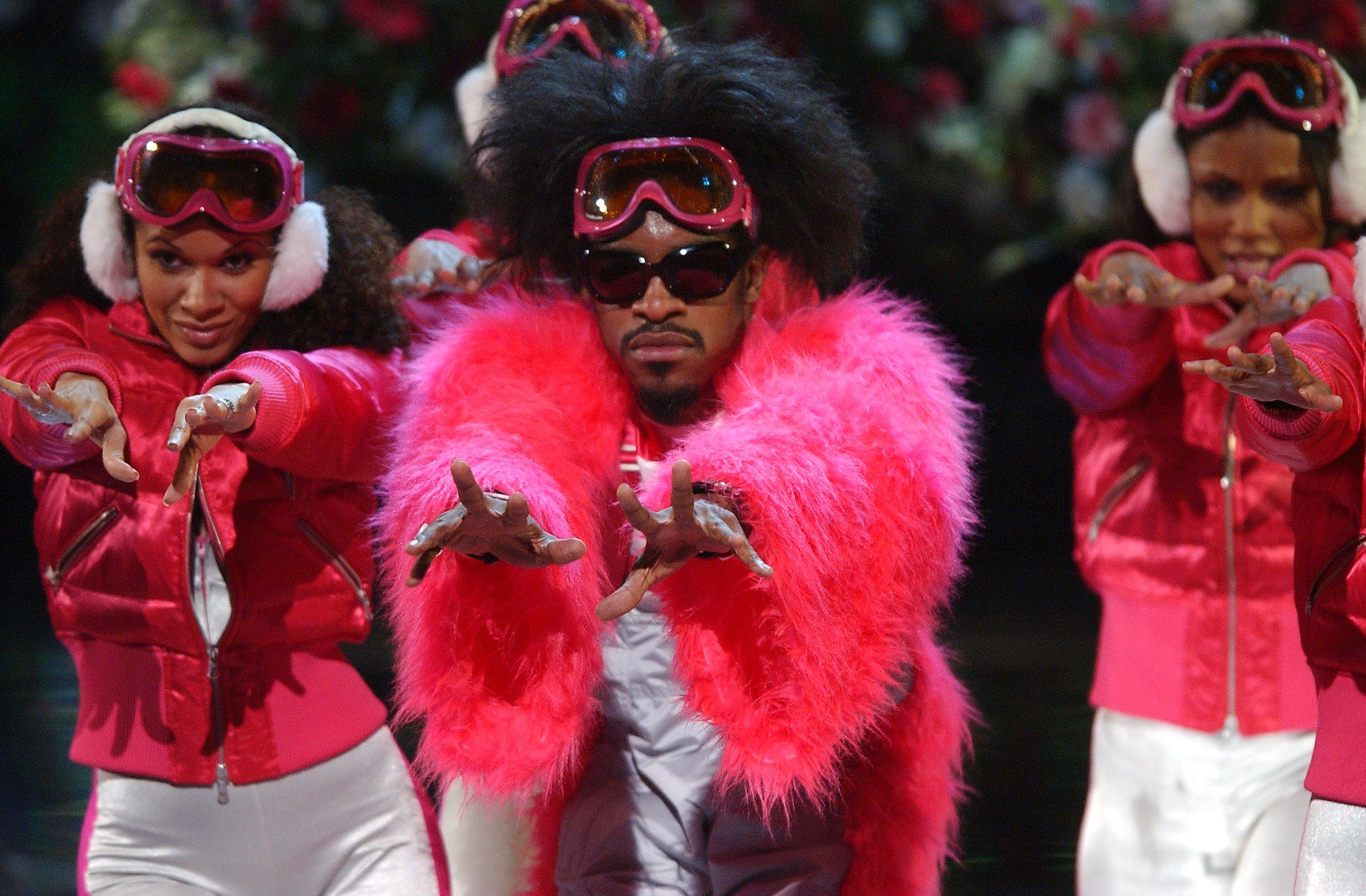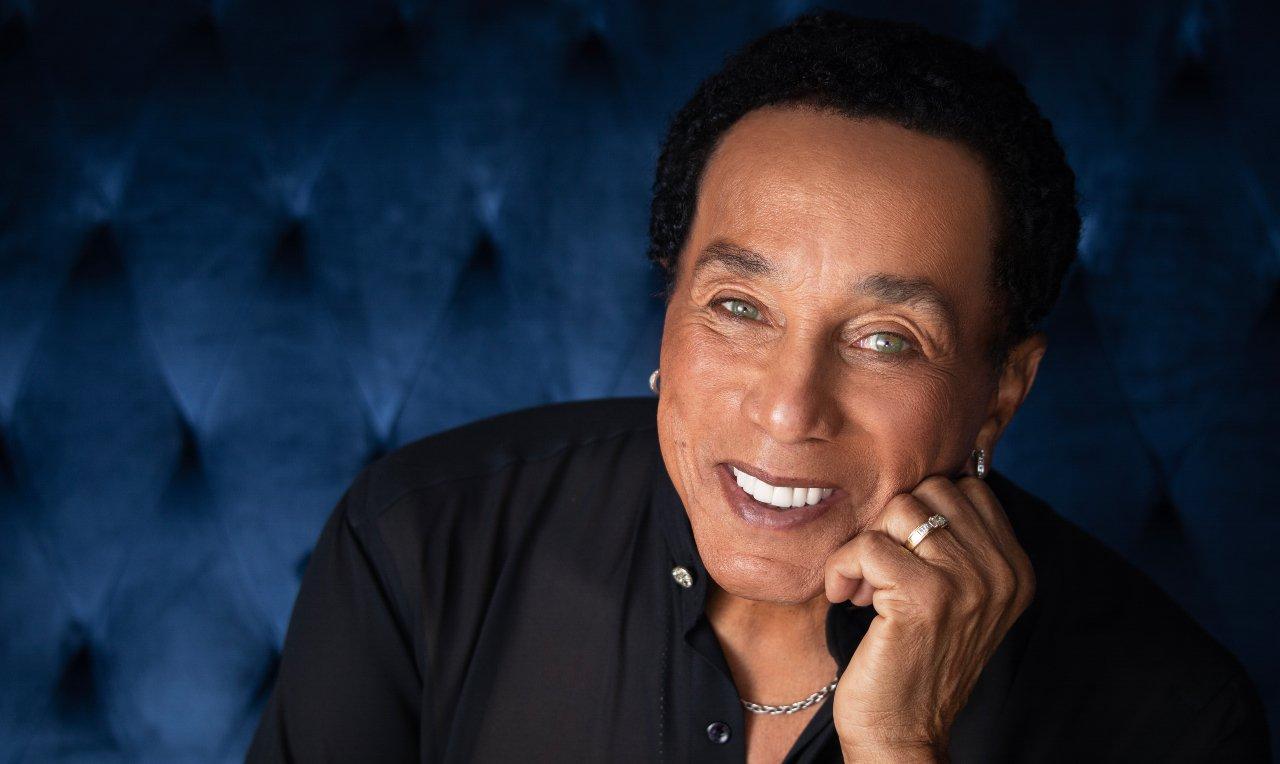Living Legends is a series that spotlights icons in music still going strong today. This week, GRAMMY.com presents an interview with GRAMMY winner and lead Miracle Smokey Robinson, whose contributions to the American musical canon — chiefly via Motown — cannot be overstated. In 2023, he was honored alongside Motown founder Berry Gordy at the MusiCares Persons Of The Year Event. Robinson's new album, Gasms, is available now.
Smokey Robinson listens to everyone. If you're on the radio, he claims, he's heard you. It doesn't matter your age, or your genre — as the 83-year-old is still in the ring, he intends to keep his gloves up. "I'm not a prejudiced musical listener," he tells GRAMMY.com. "I've got to compete with them. I've got to know what they're doing."
In the middle of a question about who, specifically, he's enjoying from the new guard, his rep's drive through a tunnel abruptly ends the call. But the Miracles and Motown star's assertion checks out — partly on the strength of his new album, Gasms, his first album of new original material since 2009.
On hot-and-bothered highlights like "I Wanna Know Your Body," "Roll Around" and "Beside You," God's gift to green eyes — to borrow a phrase — proves his writing, vocal and performance abilities remain undimmed.
"My thoughts on it is that you can put it on and be with the person that you want to be with and just kick back and enjoy each other," Robinson told the AP. "It's more of the idea of love."
There's a lot of chatter about Gasms. Of course, that's by design, and Robinson's OK with the album title subsuming the conversation. (When asked about the central thesis of the record during its conception, he responds with one word: "Controversy.")
But by Robinson's assertion, Gasms refers to anything that makes you feel good, and the high-thread-count music signifies far more than horny man is horny. It's a treat to hear that the GRAMMY winner responsible for innumerable culture-shifting classics — who has been around long enough to have met the Beatles when they were playing basements — is still a force.
With the 2023 MusiCares Person Of The Year gala, which jointly honored Robinson and Motown founder Berry Gordy, in the rearview, GRAMMY.com sat down with the man himself about his past, present and future. The results might give you a… well, you know.
This interview has been edited for clarity.
How did it feel to be honored along with your best friend, Berry Gordy, at the MusiCares Persons Of The Year 2023 gala?
That was a wonderful experience. They had never honored two people at the same time, and for me to get honored with my best friend like that — it was an extraordinary night.
When you met all those years ago, was there any inkling your relationship would stretch so far into the future — and impact the planet on this scale?
You can't tell about people and relationships, man. We just struck up a relationship. And we were good in the very beginning, and it just lasted. I couldn't be with him then — or he with me — and say, "Oh, well, this is gonna last forever," like it has, because you just never know. Fortunately, for us, it has, and we're still best friends.
How do you keep a relationship like that going on such a grand scale for decades and decades?
You know, people have asked me that many times. Sometimes, it's six months and I don't even talk to Berry. But when I do, he's my best friend, and I'm his best friend. It's never "Let me get to know you again, or feel you out," or any of that. There's none of that happening.
As you've stated, the title of Gasms isn't expressly sexual. Rather, it refers to any number of mindblowing experiences. What was the last big experience in your life or career that gave you a "gasm," as it were?
I've had so many of those. You know, gasms are what makes you happy, and makes you feel good. Recently, I had one when I did "American Idol," because I hadn't been in a long time. I was on the second panel for judges when Simon Cowell was there. I got a chance to see [judges] Lionel [Richie] and Katy [Perry] and Luke [Bryan], and it was a wonderful night.
I've been a mentor; I've been a judge. "American Idol" is one of the main state talent programs in the world, so it's a great thing for the kids. Because before they even made a record or anything like that, from the very first auditions, being seen by millions of people is a great thing for them.
Let's get to the ground floor of Gasms, when you first picked up a pen and made some calls and put together these songs. What was the central idea you wanted to put forth, musically and creatively?
Controversy.
That was it, huh?
To raise curiosity, and have people wondering what it was before they even heard it.
It seems you succeeded.
It worked. So I'm very happy about that, man.
How did you curate the accompanists and producers on Gasms?
Most of the guys are guys I've worked with all the time in the studio. I've been working with them for years, so I didn't have to get to know them. The main guy — my arranger, David Garfield — is a well-known jazz pianist who makes his own albums and stuff like that. We just got together and did the arrangements at the studio.
I'm sure you were raring to get back to original material, as wonderful as the old Miracles songs and your Christmas stuff is, and flex your songwriting muscles.
I write all the time, Morgan. It's something that I just do. It's not a conscious effort where I set aside some time to write or anything like that. It doesn't happen like that. For me, it just happens.
What are you working on lately?
Well, at the same time we were working on the Gasms album, we were working on one in Spanish. I've got two more songs I've gotta re-record for that. That's what I'm up to musically.
Is it a learning curve to record in another language, or are your Spanish chops sharp?
I've been learning Spanish for probably about a year. My housekeeper is a Spanish lady. She's from Guatemala, and she speaks four different languages, so she's been really helping me with it.
I'm not fluent in it where I understand everything. I watch the soap operas and news shows on Telemundo and stuff like that, trying to get better, but they're talking so fast. I try to get a word in every now and then and then try to pick out what they meant by the rest of the stuff.
But it's a great language, and I enjoy it very much, so I've been trying to write some songs in Spanish also.
**Your voice is so pristine on Gasms. At times, it's like you haven't aged a day. How do you keep your instrument — your voice — sharp as the years and decades go by?**
Well, first of all, I appreciate you saying that, man. Thank you very much.
Your voice is like your instrument, and if you take care of yourself, you have a better chance of it lasting and doing well for a long time. I don't think there's any secret formula — Lipton's tea with lemon and all that stuff like that. I've never done anything like that.
I just try to take care of myself. Occasionally, of course, your body will wear down and get hoarse, because you don't know how to play your instrument. I don't do any special stuff.
What are your habits, or what's your regimen, to keep your physical vessel in shape?
I think that the main one is yoga. I've been doing yoga for about 40 years, and I do it almost every day of my life. Then, I have workout programs I do. I have a half-hour workout program and then an hour one. At home, I do the full monte, because I can do everything; I have weights in the basement and so on and so forth.
When I'm on the road, I have a 45-minute regiment that I do most mornings, and it starts with stretching.
**I really enjoy how you didn't feel the need to reinvent the wheel with Gasms. The songs could have been written 60 years ago or yesterday. What is it about the timelessness of songs about love, romance and sensuality?**
Well, yeah, they all have a connotation; you can use your own ideas of what they mean. For instance, "gasms." That can mean whatever you want it to mean. I try to put that connotation in all of them, so whatever the person means, or who is the listener, it can be that for them.
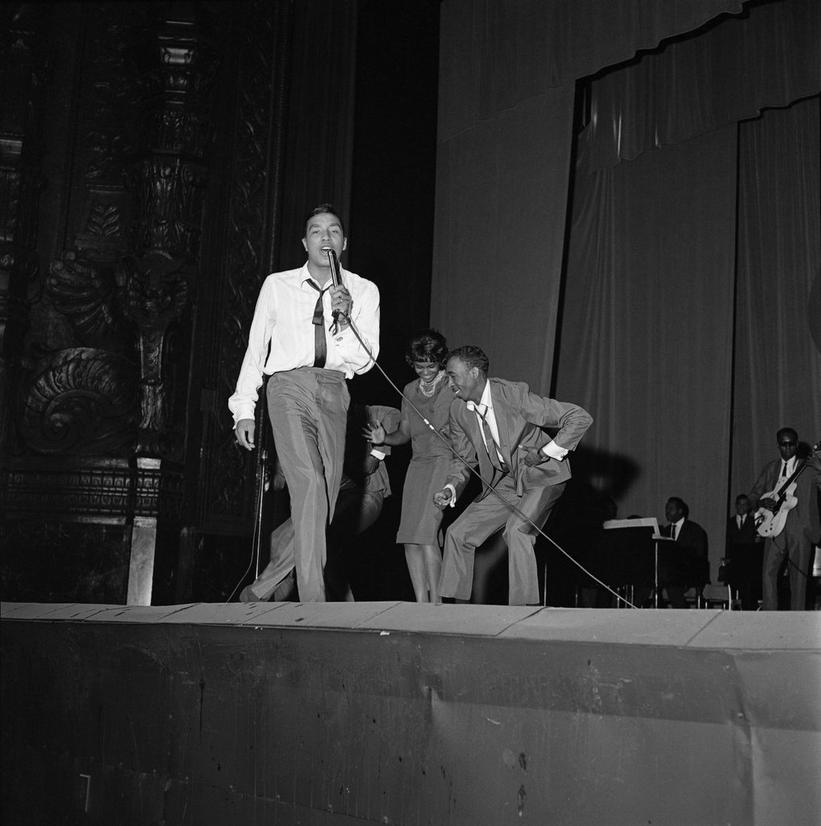
*Smokey Robinson performing in 1964. Photo: PoPsie Randolph/Michael Ochs Archives via Getty Images*
Speaking of timeless love songs, you play a huge role in the Beatles' rise. They worshiped you, and beamed you into millions of kids' heads via "You Really Got a Hold On Me" on With the Beatles. And you've covered them, too. Does it feel surreal to look back to your youth, and to these recordings, and say I wrote that?
You know, I don't think about that nowadays, man, unless somebody brings it up. It's not something I concentrate on, or anything like that, but it's a wonderful thing.
It was especially wonderful — back then, they were the number one group in the world — to pick one of my songs. They were great songwriters themselves. So, to pick one of my songs to record was especially flattering.
What are your memories of those guys?
Oh, they were cool dudes, man. I had met them before they became [Adds air of thunderous significance] the Beatles. We met them in Liverpool; they were singing in a little club down in the basement. They were good guys, and I especially got close to George while he was alive, you know? He was my closest friend in that group.
He sure loved you. He wouldn't have written "Pure Smokey" if he didn't. Can you offer more memories of George?
George was just a great guy, man. He was a nice man. He was one of those people that if you meet him, you like him.
With Gasms out in the world, what do you hope people take away from it?
Oh, take away some enjoyment. I hope they enjoy it with themselves, alone, and with others also. That's what I want them to take away from it. If I can accomplish that, then I feel that I've done what I set out to do.
What has been giving you "gasms" lately? What are you watching, reading or listening to that has been inspiring you?
I listen to everyone, man.
I'm a music lover, so I listen to all kinds of music. Especially when I'm in my car, and there's no telling what musical mood you're going to catch me in. Weeks happen where I don't listen to anything but classical — Chopin and Rachmaninoff and all that. Sometimes, I listen to hip-hop or jazz or alternative. I just love music, man.
What newer artists have you been checking out?
All of them, that are making music that I can hear on the radio. I listen to all of them, because I'm still making records, too. So, I've got to compete with them. I've got to know what they're doing. I'm not a prejudiced musical listener, whereas I think, OK, these are young people, so I'm not gonna listen to their music.
No, they're in the forefront of music right now. So I listen to everybody.
Living Legends: Van Morrison On New Album Moving On Skiffle, Communing With His Roots & Reconnecting With Audiences

